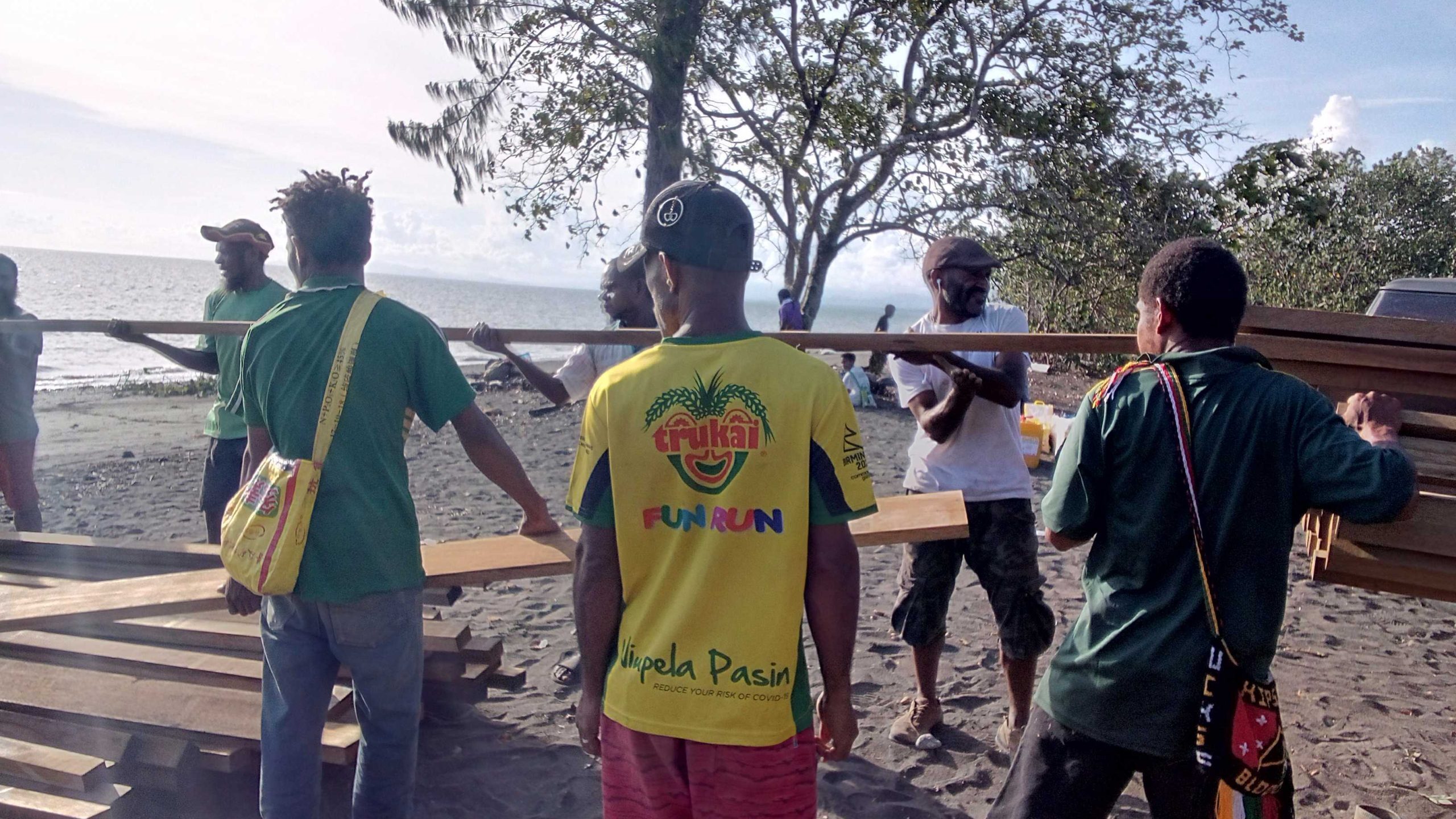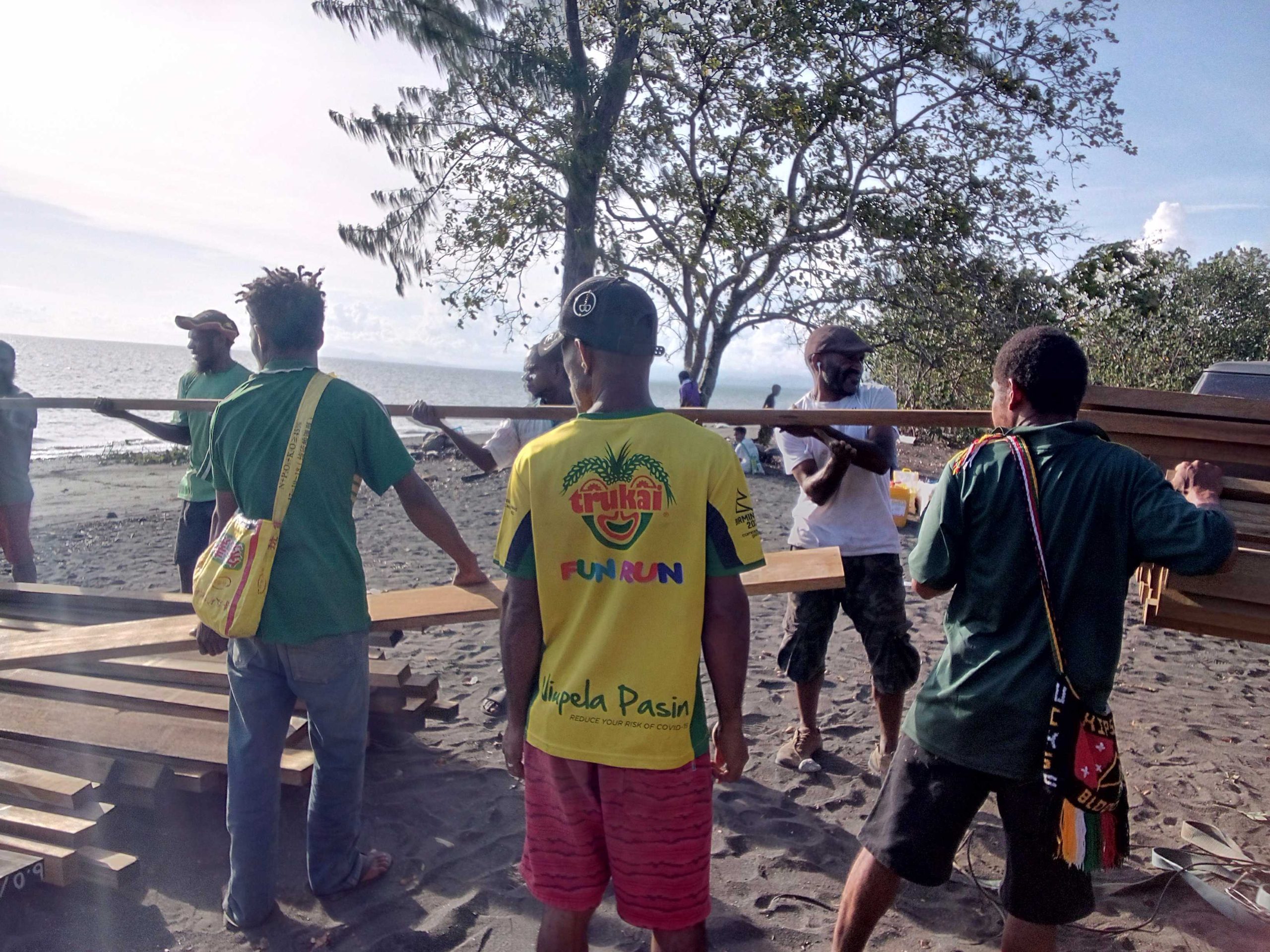
People vs. the climate crisis in Papua New Guinea
What are people on the ground doing to address environmental issues in Papua New Guinea?
Papua New Guinea (PNG) is one of the most ecologically diverse countries on the planet, with an estimated 7% of the world’s total species, including many endemic ones found nowhere else in the world, and all this on an island that covers just 1% of land surface.
The New Guinea rainforest in Papua New Guinea is also the third largest rainforest in the world, stretching 73 million hectares, and plays a critical role in regulating the global climate. The country’s ecology is vital to the livelihoods and cultures of its Indigenous Peoples, who depend on the forests, rivers, and oceans for food, medicine and much more.
We are extremely lucky to have been working with people and villages in the country since 2013. That’s 10 years working with people on the ground to maintain their amazing biological and cultural diversity.
But Papua New Guinea is unfortunately faced with a number of environmental issues, which impacts both people and planet.
Deforestation
The main drivers of deforestation in PNG are commercial logging, oil palm plantations, mining, and other land-use changes. In fact, PNG lost around 6.5 million hectares of forest between 1972 and 2015, which is equivalent to 14% of its total forest cover ((Deforestation rates in insular Southeast Asia between 2000 and 2010 (Miettinen et al, 2017).)). This has serious implications for biodiversity, carbon storage, and the livelihoods of local communities who depend on forests for their subsistence.
Sea level rise
PNG is one of the countries most vulnerable to sea level rise, which is caused by melting ice sheets and thermal expansion of seawater due to global warming. In fact, it is estimated that more than 80% of PNG’s population lives in coastal areas that are vulnerable to sea-level rise and associated impacts such as storm surges and coastal erosion ((What‘s happening in the Pacific (Climate Analytics, accessed 21/02/23).)). This means that many coastal communities are at risk of displacement and loss of livelihoods.
Biodiversity loss
PNG is one of the world’s most biologically diverse countries. However, this biodiversity is under threat from habitat loss, hunting, invasive species, and other factors. For example, a recent study found that 36% of endemic tree species in Papua New Guinea are threatened with extinction ((Extinction risk to the endemic trees of Papua New Guinea (Barstow et al., 2022).)).
Carbon colonialism
On top of all of this, a recent report has exposed issues with carbon offsetting operations in Papua New Guinea ((Carbon Colonialism Exposed In Papua New Guinea (CELCOR, accessed 21/02/23).)). Environmental devastation was found in the same area that one carbon offsetting company claimed to be protecting. Logging companies and carbon offset companies were also found existing in one forest area. Furthermore, the revenue from these carbon offsetting projects was going straight to the companies themselves, with nothing going back to the locals and Indigenous communities who own the land and forests. This is carbon colonialism and why we’re fully convinced that cash to people must be unconditional.
Finding empowerment in forest data
However, there is still hope in protecting Papua New Guinea’s biodiversity and safeguarding the futures of the Indigenous Peoples who call it home. Our partners in Wabumari are in the process of building their first Rainforest Lab, with materials arriving this week.

Rainforest Labs provides people living in rainforest access to satellite data, data they have previously been excluded from.
Knowledge is power, and accessing forest data can reveal trends and threats in real-time to drive climate action. Combining traditional local knowledge with PNG university academics to contribute to scientific publications and real-time satellite data gives people the power, insight and evidence to protect their home and rainforest.
Wabumari’s Lab will consist of an office housing monitoring equipment, a conference room for sharing knowledge and ideas and a herbarium, for all things local plant knowledge.